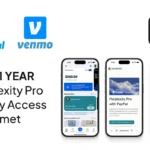Now Reading: 12 Best LMS for Selling Courses With Powerful Marketing Features
-
01
12 Best LMS for Selling Courses With Powerful Marketing Features
12 Best LMS for Selling Courses With Powerful Marketing Features

Creating and selling online courses has never been more accessible or profitable. But choosing the best LMS for selling courses can make or break your digital education business. After testing dozens of platforms and analyzing countless user reviews, I’ve compiled this comprehensive guide to the 12 best LMS for selling courses. This comparison will help you find the perfect platform to showcase your expertise and maximize your revenue.
Thinkific
Thinkific stands out as one of the best LMS for selling courses, especially for beginners and scaling course creators. What makes Thinkific my top recommendation is its intuitive course builder combined with robust marketing features.
Key Features:
- Drag-and-drop course builder with no coding required
- Customizable sales pages and checkout process
- Comprehensive student management system
- Advanced quiz capabilities and completion certificates
- Robust API for integrations with other tools
Thinkific supports 30 languages and 135 currencies, making it ideal if you’re targeting an international audience. Their TCommerce payment processing system handles all the complex tax calculations automatically, saving you significant administrative headaches.
Pricing:
Thinkific’s paid plans start at $36/month (billed annually), which includes unlimited courses and students. While not the cheapest option, the value you get in terms of features and scalability is exceptional.
Best For:
Thinkific is perfect for creators who want a professional-looking course platform without needing technical skills. The platform grows with you, making it suitable for both beginners and established course businesses.
Pros:
- No transaction fees on any plan
- Excellent customer support
- Comprehensive course building tools
- Strong community of users for networking
- AI-powered content creation tools
Cons:
- Limited email marketing capabilities
- Community features aren’t as robust as dedicated community platforms
- The free plan is quite limited compared to paid options
LearnWorlds
LearnWorlds is built specifically for course creators who want to deliver highly interactive learning experiences. Unlike many platforms that rely on static content, LearnWorlds excels at creating engaging, interactive courses.
Key Features:
- Interactive video technology with embedded quizzes
- SCORM support for importing existing e-learning content
- White-labeling options for a completely branded experience
- Built-in social learning environment
- Customizable sales pages with high conversion rates
What sets LearnWorlds apart is its focus on engagement. The platform allows you to create interactive ebooks, add notes to videos, and build communities around your courses. This leads to better completion rates and higher student satisfaction.
Pricing:
LearnWorlds starts at $24/month (billed annually), making it one of the more affordable options with premium features. However, the starter plan includes a $5 fee per course sale, which can add up quickly as your sales increase.
Best For:
LearnWorlds is ideal for creators who prioritize student engagement and interactive learning experiences. It’s particularly well-suited for technical or complex subjects that benefit from interactive elements.
Pros:
- Superior interactive course elements
- Excellent course player experience
- Built-in community features
- Strong SEO tools for course visibility
- Comprehensive analytics
Cons:
- Steeper learning curve than some competitors
- Per-sale transaction fee on the starter plan
- Some advanced features require higher-tier plans
Teachable
Teachable has earned its reputation as one of the best LMS for selling courses due to its simplicity and focus on the essentials. If you’re looking for a straightforward way to upload your content, set a price, and start selling without technical complications, Teachable delivers.
Key Features:
- User-friendly course builder
- Integrated payment processing
- Customizable sales pages
- Course completion certificates
- Coaching product capabilities
- Built-in communities
Teachable’s new AI assistant is particularly helpful for first-time course creators, guiding you through the setup process step-by-step. The platform supports multiple content types, including text, quizzes, PDFs, video, and even code snippets.
Pricing:
Teachable’s plans start at $39/month (billed annually). While not the cheapest option, the straightforward pricing and lack of hidden fees make it appealing for many creators.
Best For:
Teachable is perfect for solo creators, coaches, and subject-matter experts who want a clean, no-fuss way to launch their first course or coaching offer without dealing with tech headaches.
Pros:
- Extremely easy to use
- Reliable payment processing
- Good student experience
- Coaching capabilities
- Recently added community features
Cons:
- Limited email marketing capabilities
- Less customization than some competitors
- Higher transaction fees on lower-tier plans
Useful Articles:
Kajabi
Kajabi is the premium all-in-one solution in the LMS market. What sets Kajabi apart from other platforms on this list is its comprehensive suite of tools that go far beyond just course hosting.
Key Features:
- Complete website builder with blog functionality
- Advanced email marketing system
- Sales funnel builder
- Membership site capabilities
- Podcast hosting
- Comprehensive analytics dashboard
Kajabi essentially combines several tools into one platform: course hosting, email marketing, website building, and sales funnels. This integration eliminates the need for multiple subscriptions and simplifies your tech stack.
Pricing:
Kajabi’s plans start at $55/month (billed annually), making it one of the more expensive options. However, when you consider the cost of purchasing separate tools for website hosting, email marketing, and funnel building, the value becomes more apparent.
Best For:
Kajabi is ideal for established course creators and digital entrepreneurs who want a comprehensive solution and are willing to invest in a platform that can handle all aspects of their online business.
Pros:
- All-in-one solution eliminates need for multiple tools
- Powerful marketing automation
- Professional templates and designs
- No transaction fees
- Excellent customer support
Cons:
- Higher price point than specialized platforms
- Steeper learning curve due to extensive features
- Limited customization compared to WordPress-based solutions
Podia
Podia has quickly become one of the best LMS for selling courses thanks to its clean interface and comprehensive feature set at an affordable price point.
Key Features:
- All-in-one platform for courses, digital downloads, and memberships
- Built-in email marketing
- Webinar and live streaming capabilities
- Affiliate marketing system
- Coaching tools
- Blogging capabilities
What I particularly appreciate about Podia is its transparent pricing and lack of transaction fees. The platform also makes it easy to bundle products, offer upsells, and create pre-sales for upcoming courses.
Pricing:
Podia starts at $33/month (billed annually), positioning it as a more affordable alternative to Kajabi while still offering many all-in-one features.
Best For:
Podia is perfect for coaches and budget-conscious creators who want a clean, straightforward platform that handles multiple product types without technical complexity.
Pros:
- No transaction fees
- Unlimited courses and students on all plans
- Simple, intuitive interface
- Good customer support
- Integrated email marketing
Cons:
- Less advanced customization options
- Limited quiz functionality compared to education-focused LMS
- Fewer integration options than some competitors
LearnDash
LearnDash is the premier WordPress LMS plugin, giving you complete control over your course platform when installed on your WordPress site.
Key Features:
- Advanced quiz builder with multiple question types
- Drip-feed content scheduling
- Certificates and badges
- Focus mode for distraction-free learning
- Course points and gamification
- Group management
What makes LearnDash stand out is the level of control and ownership you maintain. Since it’s installed on your WordPress site, you own all aspects of your platform and have unlimited customization options.
Pricing:
LearnDash starts at $29/month (billed annually), making it one of the more affordable options if you already have WordPress hosting. However, you’ll need to factor in additional costs for hosting, themes, and potentially other plugins.
Best For:
LearnDash is ideal for WordPress users who want complete control over their course platform and have some technical comfort with managing a WordPress site.
Pros:
- Complete ownership and control
- One-time payment options available
- Highly customizable
- Integrates with other WordPress plugins
- No transaction fees
Cons:
- Requires separate WordPress hosting
- More technical setup than all-in-one platforms
- May require additional plugins for marketing features
Useful Articles:
Paradiso LMS
Paradiso LMS stands out as one of the best LMS for selling courses, particularly for businesses looking for a comprehensive, customizable solution.
Key Features:
- White-labeling capabilities
- Advanced reporting and analytics
- Multi-tenant architecture
- Gamification elements
- Virtual classroom integration
- Mobile learning support
What makes Paradiso unique is its flexibility and customization options. The platform can be tailored to meet specific business requirements, making it suitable for complex training needs and diverse learning environments.
Pricing:
Paradiso LMS offers custom pricing based on your specific needs. While this means you’ll need to contact them for a quote, it also ensures you only pay for the features you need.
Best For:
Paradiso is ideal for medium to large businesses, training companies, and educational institutions that need a highly customizable LMS solution.
Pros:
- Highly customizable
- Comprehensive feature set
- Strong customer support
- Scalable for growing organizations
- Robust integration capabilities
Cons:
- Custom pricing may be higher than off-the-shelf solutions
- Potentially longer implementation time
- May be overly complex for simple course needs
TalentLMS
TalentLMS is a cloud-based LMS that excels in corporate training environments while also offering strong capabilities for selling courses.
Key Features:
- User-friendly interface with minimal learning curve
- Robust reporting and analytics
- E-commerce integration with Stripe and PayPal
- Customizable certificates
- Branching scenarios
- API access for integrations
TalentLMS offers a clean, intuitive interface that makes course creation straightforward. The platform’s flexibility allows it to serve both internal training needs and external course sales.
Pricing:
TalentLMS offers a free plan for small teams, with paid plans starting at $119 per month. Higher-tier plans provide additional user capacity, automation features, and advanced analytics.
Best For:
TalentLMS is ideal for small to medium-sized businesses that want to both train employees and sell courses to external audiences.
Pros:
- Clean, intuitive interface
- Flexible pricing plans including a free option
- Strong reporting capabilities
- Good balance of features and usability
- Reliable uptime and performance
Cons:
- Limited marketing features compared to dedicated course platforms
- Some customization limitations
- Advanced features require higher-tier plans
Docebo
Docebo is a powerful enterprise-level LMS that combines AI-powered learning with robust selling capabilities.
Key Features:
- AI-powered learning recommendations
- Social learning features
- Extensive API and integration options
- Advanced reporting and analytics
- Multi-language support
- Mobile learning app
What sets Docebo apart is its use of artificial intelligence to enhance the learning experience. The platform can recommend courses, identify skill gaps, and personalize the learning journey for each user.
Pricing:
Docebo’s enterprise pricing ranges from $75,000 to $120,000 for 3 years of use, positioning it firmly in the enterprise category.
Best For:
Docebo is ideal for large organizations and enterprises with substantial training needs and the budget to match.
Pros:
- Advanced AI capabilities
- Comprehensive feature set
- Excellent for large organizations
- Strong customer support
- Regular updates and improvements
Cons:
- High price point
- Potentially complex implementation
- May have more features than smaller organizations need
Useful Articles:
Absorb LMS
Absorb LMS is a robust, scalable platform that works well for both internal training and selling courses externally.
Key Features:
- Intuitive admin interface
- Responsive design for all devices
- Customizable branding
- Built-in e-commerce
- Robust reporting
- Mercury Module for automation
Absorb LMS stands out for its balance of power and usability. The platform offers advanced features while maintaining an intuitive interface that doesn’t overwhelm users.
Pricing:
Absorb LMS pricing is available upon request, with custom quotes based on your specific needs and user count.
Best For:
Absorb is ideal for medium to large enterprises, professional training firms, and other business entities with complex training needs and diverse learner groups.
Pros:
- Powerful yet user-friendly
- Strong customization options
- Excellent customer support
- Regular feature updates
- Scalable for growing organizations
Cons:
- Custom pricing may be higher than some alternatives
- Some advanced features have a learning curve
- May be more than needed for simple course sales
Mighty Networks
Mighty Networks offers a unique approach to online courses by putting community at the center of the learning experience.
Key Features:
- Community-centered course design
- Live streaming capabilities
- Native mobile apps
- Activity feeds and direct messaging
- Events and calendar features
- Membership subscriptions
What makes Mighty Networks stand out is its focus on building communities around your courses. This approach can lead to higher engagement, better completion rates, and stronger student relationships.
Pricing:
Mighty Networks plans start at $99/month (billed annually), positioning it in the mid-range of pricing for course platforms.
Best For:
Mighty Networks is ideal for creators who want to build a community-centered learning experience rather than just delivering course content.
Pros:
- Superior community features
- Engaging member experience
- Native mobile apps included
- Good for recurring revenue models
- Strong focus on student interaction
Cons:
- Course features not as robust as dedicated LMS platforms
- Higher starting price point
- Limited marketing automation
Zenler
Zenler is a comprehensive all-in-one platform that focuses heavily on sales and marketing features to help you sell more courses.
Key Features:
- Built-in email marketing and automation
- Sales funnel builder
- Webinar and live class capabilities
- Membership site functionality
- Affiliate management
- Blog functionality
What stands out about Zenler is how the entire platform is built around sales and marketing. You get done-for-you funnels, automation tools, email sequences, and even pre-written high-converting email scripts.
Pricing:
Zenler starts at $54/month (billed annually), positioning it as a more affordable alternative to Kajabi with many similar features.
Best For:
Zenler is perfect for course creators who want powerful marketing tools without the higher price tag of premium all-in-one platforms.
Pros:
- Comprehensive marketing features
- Good value for the price
- No transaction fees
- Built-in webinar functionality
- Regular feature updates
Cons:
- Newer platform with some features still in development
- Less established community than older platforms
- Some design limitations compared to premium alternatives
Comparison Table
| Platform | Best For | Key Features | Starting Price | Pros | Cons |
|---|---|---|---|---|---|
| Thinkific | Beginners and scaling creators | Course builder, add-ons, AI | $36/month | No transaction fees, excellent support | Limited email marketing |
| LearnWorlds | Interactive course creation | Interactive video, SCORM support | $24/month | Superior interactive elements | Transaction fee on starter plan |
| Teachable | Simplicity-focused creators | User-friendly builder, coaching tools | $39/month | Extremely easy to use | Limited customization |
| Kajabi | Established course businesses | All-in-one solution, marketing tools | $55/month | Comprehensive feature set | Higher price point |
| Podia | Budget-conscious creators | All-in-one platform, no transaction fees | $33/month | Clean interface, unlimited courses | Limited customization |
| LearnDash | WordPress users | Advanced quizzes, complete control | $29/month | Complete ownership, highly customizable | Requires WordPress knowledge |
| Paradiso LMS | Medium to large businesses | White-labeling, advanced reporting | Custom | Highly customizable | Potentially complex setup |
| TalentLMS | Small to medium businesses | User-friendly interface, e-commerce | $119/month | Clean interface, free plan available | Limited marketing features |
| Docebo | Large enterprises | AI-powered learning, extensive API | $75,000-$120,000/3yrs | Advanced AI capabilities | High price point |
| Absorb LMS | Medium to large enterprises | Intuitive admin, built-in e-commerce | Custom | Powerful yet user-friendly | Custom pricing may be high |
| Mighty Networks | Community-focused creators | Community features, live streaming | $99/month | Superior community features | Limited course features |
| Zenler | Marketing-focused creators | Marketing automation, sales funnels | $54/month | Comprehensive marketing tools | Newer platform |
Choosing the best LMS for selling courses ultimately depends on your specific needs, budget, and growth plans. Each platform offers unique strengths, and the right choice will align with your teaching style, technical comfort level, and business goals.




















